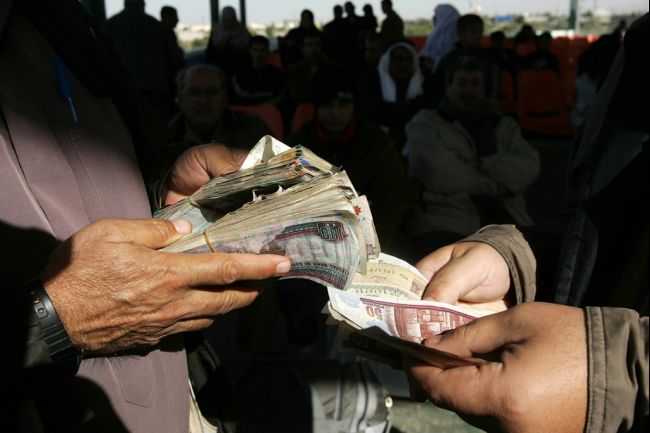
(AFP Photo)
The Supreme Constitutional Court (SCC) ruled yesterday that clauses in the tax law are unconstitutional. The court said that certain clauses in the law do not specify criteria to govern the actions of authorities, which violates the 1971 constitution under which the law was issued.
“This is a very old law and it is too soon to judge now,” said Ashraf Badr El-Din, a Freedom and Justice Party member from the economic committee.
The SCC was unavailable for comment.
The Shura Council approved a new income tax law that will increase taxes on high-income earners and companies, while reducing taxes for lower income brackets.
The new tax law will widen the top tier tax bracket of 25% tax, formerly for those earning above EGP 10m, to include those earning EGP 250,000.
Those earning less than EGP 5,000 per annum will continue to pay no taxes.
A number of economy experts described the Shura’s new income tax law “compliant” with the International Monetary Fund (IMF) as the global lender had previously asked the government to reduce its budget deficit.
The budget deficit is expected to reach 11.5% of the country’s GDP in the fiscal year ending in June.
Financial expert Magdy Tolba said that the law was crucial for the Egyptian government to obtain the hoped for $4.8bn loan from the IMF.
Companies will also be subjected to a unified tax rate of 25%, compared to the present law taxing those earning less than EGP 10m per year at 20%.
Analysts viewed the income tax law as a quick method for the Muslim Brotherhood to garner support before the coming elections.
In addition, they viewed this as a golden opportunity for President Mohamed Morsi to show his commitment to achieving social justice and income equality.
The previous law charged 10% for those earning from EGP 5,000 to EGP 20,000; 15% for those earning between EGP 20,000 and EGP 40,000; 20% for those earning between EGP 40,000 and EGP 10m; and 25% for those earning above EGP 10m.
The new law requires Egyptians who earn between EGP 30,000 and EGP 45,000 to pay the 15% tax rate, while those who earn between EGP 45,000 and EGP 250,000 will now pay 20%, and those earning over EGP 250,000 will pay 25%.
The new tax law, which needs to be ratified by Morsi, will come into effect within one month of final approval.




